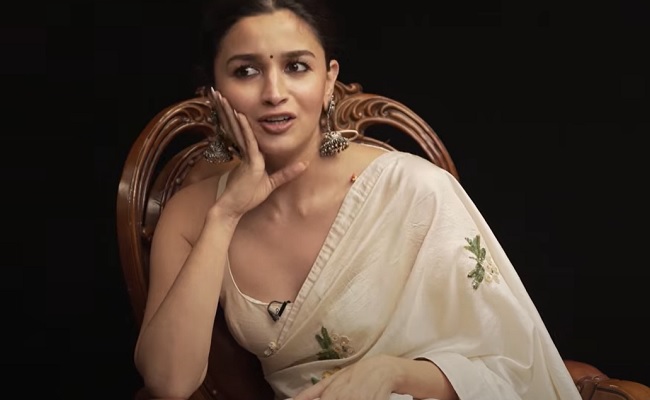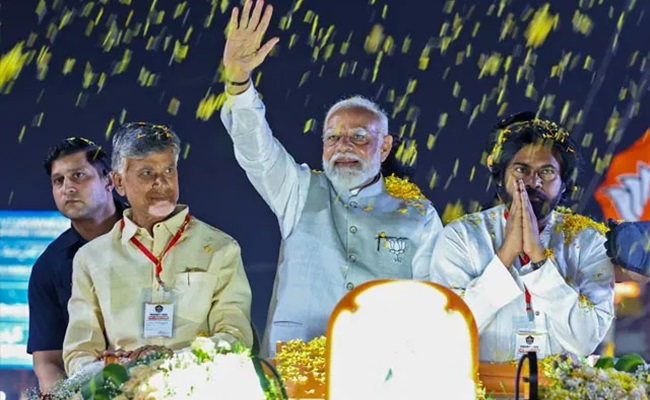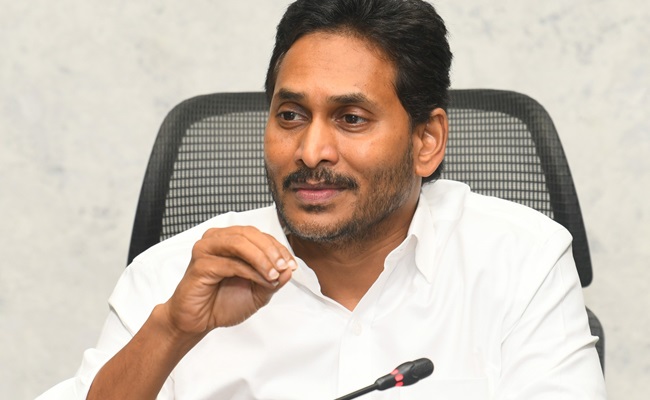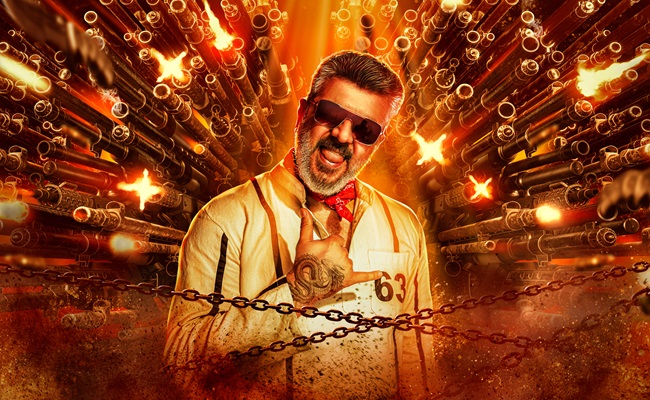
A recent media report said that Alia Bhatt has been cast in a Hollywood film. Now, that would be the ultimate dream of many Indian artistes. However, the route to Hollywood is not at all easy, nor eventually fruitful.
All careers are ambition-driven in all fields. But, somehow, more so in the film industry. Hundreds of aspirants descended on Bombay to seek a career in films. The aim was stardom through acting. Not all could make it as an actor, let alone become a star. Most of these youth dreamt of stardom while watching films, imitating their favourite star's dressing style, hairstyle and behaviour. The vernacular film magazines fed them with the glamour quotient of the film industry.
The way to stardom was through Bombay of that time. The struggle started the moment one landed. Many dreams travelled on the Frontier Mail to the city from the North. Most were shattered and the few, very few, that fructified would make a volume in itself.
It was mostly about the actors, but there were also those who came here in Mumbai to pursue the dream of becoming music composers, writers, and shining in affiliated fields. In those days, almost all actors, composers, lyricists and filmmakers were migrants, mainly from Punjab, Uttar Pradesh and West Bengal. I have always believed that when we had story writers and lyricists who wrote in Urdu, we had much better output than we have now when the writers think in English and then try to translate into Hindi.
One can say that those actors who made it in films were lucky. When it came to the struggle of making a portfolio of pictures when they did not even have money to eat, visiting production offices and studios in the hope of just being noticed by a filmmaker or director. Something drove them to carry on.
There are stories of lodges and restaurants In the Mumbai suburb of Bandra, where they found shelter and food on the promise of settling the dues; it was just a matter of getting a break!
Then a new trend started. The aspiring actors and others keen on cinematography, editing, direction and so on had a place to train them, the Film And Television Institute of India (FTII) in Pune. Soon, steady hordes of 'certified' talent descended on the film industry. They included directors, cinematographers, editors and actors. But the FTII students who made a mark in Hindi films were the ones aspiring to be actors.
Of course, many of the directors got their chances. Sadly, they were trained on and exposed to the films of legendary European filmmakers. Something that was not relevant to Indian films. Their idols were the likes of Federico Fellini, Michelangelo Antonioni, and Ingmar Bergman, and not Mehboob, K. Asif, Raj Kapoor, Guru Dutt or other Indian legends.
In fact, many of those who trained to be film directors at the FTII took to making what were in those days called offbeat films! There were no film distributors or cinema chains willing to touch these films. I can't think of any direction alumnus from the institute who made it to mainstream filmmaking and achieved a certain amount of success except Kundan Shah.
The other successful directors, such as David Dhawan and Subhash Ghai, were not really trained for direction. Dhawan trained in film editing; Ghai was from the acting faculty. Dhawan was a sought-after editor while Ghai was a failed actor who, wisely, took to direction. Both turned out to be successful directors.
When it came to actors from the FTII, there were many who entered the film industry during the 1970s. Most of them found work. All filmmakers could not afford big stars and casting a newbie was a risk. With FTII acting graduates, it was different.
They were trained and certified and that worked in their favour. Just about every acting graduate found work almost at once. They had no airs of being stars and were willing to accept any assignment. Small-time producers found a steady source of talent. We had actors like Shatrughan Sinha, Jaya Bhaduri, Anil Dhawan, Vijay Arora, Danny Denzongpa, Shabana Azmi, Naseeruddin Shah, Om Puri, Mithun Chakraborty and Romesh Sharma.
In most cases, the acceptance was slow because of the kind of films they did initially, but they integrated into mainstream cinema eventually. Later, talent also landed from the National School of Drama (NSD).
Filmmakers had a variety of options with a new breed of actors with no airs, willing to be cast in any role. Shatrughan Sinha, for instance, as did Danny Denzongpa, started off as villains. Mithun Chakraborty worked as an extra! Many of them went on to become stars. Television, when it began airing serials, opened one more source for acting talent. It is not a film industry, yet, progressively, it has emerged as the Indian entertainment industry.
Initially, film folk considered television to be the country cousin, different from films. But, as private television channels opened up, the gap lessened. Both merged. Even a superstar could now work for a television show!
Now, we are into the OTT era. And we have more acting talent than the filmmakers can accommodate. As it happens, the last two years have also been the worst for the film industry because of the Covid-19 pandemic on top of which the big-ticket Hindi stars are failing to deliver. This has led to OTT stars being sought-after for films.
OTT works both ways. It has given work to many actors whose careers in films were on the verge of plateauing (Saif Ali Khan, Abhishek Bachchan, Manoj Bajpayee and so on), while also giving new talent to the industry. Pratik Gandhi, for example. His performance in '1992: The Harshad Mehta Story', made everybody take notice of him and, soon, film assignments followed.
Be it television or OTT and even regional films, just about every actor nurses the dream of making it in Hindi films. It gives one more exposure, in the media as well as with the public. And, as in the case of Shah Rukh Khan, who debuted on television, but made it big in films when he got a chance, adulation comes in plenty.
But, even while the entertainment industry here gives name, fame and riches, why do some stars crave for a Hollywood break? Some of the big stars have done bit roles in Hollywood films, but the media goes wild and makes it look like he/she has simply captured Hollywood! The ambitious ones also engage agents there to look for assignments.
From Persis Khambatta to I.S. Johar, Kabir Bedi, Amrish Puri, Gulshan Grover, Anupam Kher, Amitabh Bachchan, Anil Kapoor, Irrfan, Naseeruddin Shah, Om Puri, Aishwarya Rai, Shabana Azmi, Priyanka Chopra, Tabu, Freida Pinto and Deepika have made a film or television series in the US or in Britain. And now comes the announcement of Alia Bhatt landing a Hollywood assignment.
Why put in all that struggle all over again? What good is a film in Hollywood? After all, these stars never get called again!













